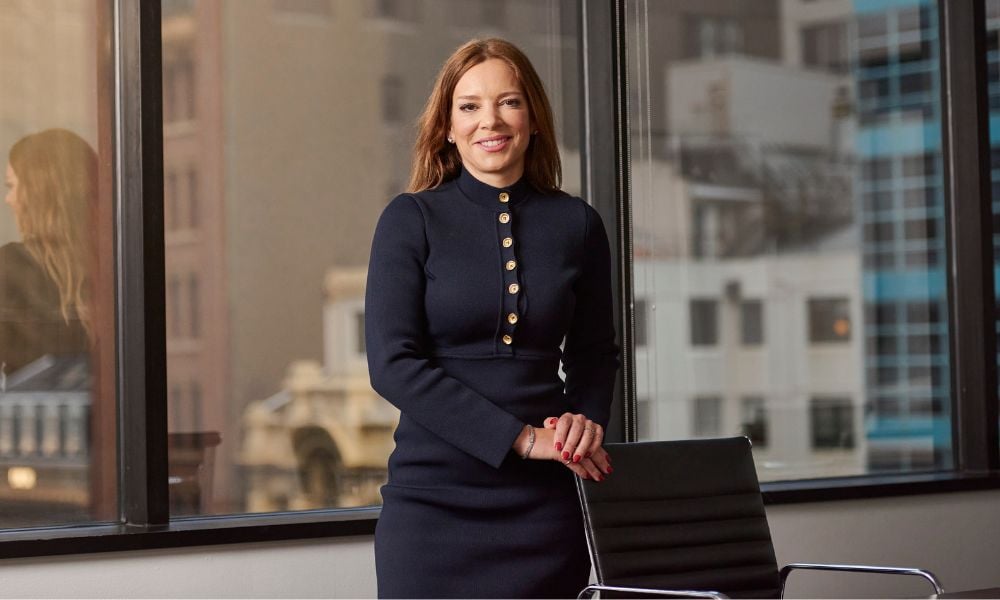Submission to government seeks to grow and strengthen industry

In an ongoing effort to champion diversity and inclusion in the mortgage industry, the MFAA has made a submission to Treasury.
In line with the federal government’s ambition for Australia to be a world leader in gender equality, the submission provides four recommendations for the mortgage and finance industry.
As the peak body for the mortgage and finance broking industry, diversity and inclusion is one of the MFAA’s key strategic pillars. It is recognised as a key requirement for the ongoing sustainability and growth of the industry, and to service the diverse needs of clients.
MFAA CEO Anja Pannek (pictured above) is a strong supporter of diversity and inclusion. Upon taking the helm at the MFAA in September, Pannek communicated the importance of people actively choosing mortgage broking as a “career of choice”.
Talking to MPA about the Employment Whitepaper- Equal Opportunities for Women and Labour Force Participation, which the MFAA submitted to Treasury on November 30, Pannek said the submission was anchored around the federal Treasury’s employment taskforce whitepaper on jobs and skills.
The submission includes research around female participation, and some of the causal factors around it, she said.
“It’s about equal opportunity, equal opportunity for females and in particular, promoting female workforce participation,” Pannek said.
In the submission, the MFAA made the following four recommendations:
- Invest in female-led small broking businesses to grow and scale into the future
- Incentivise the recruitment of untapped talent through government-sponsored pathways
- Help the most vulnerable into homes (government schemes such as Help to Buy must include brokers)
- Form a government/industry partnership to forward female participation in the broking industry
For the industry to be sustainable over the longer term, Pannek said it should represent the business and consumer customers that it served. Referring to current research showing female brokers represent just 25.5% of total broker numbers, Pannek said her goal was to elevate the conversation around diversity and inclusion, and in the nearer term, to address the decline in female participation.
In its recommendation to incentivise the recruitment of untapped talent, the MFAA identified that women over age 45 continued to have lower workforce participation than men. They may have stepped out of the workforce for a number of years to raise children and may experience barriers such as age discrimination.
The MFAA said in the submission it considered this cohort of women to be a “large and untapped talent pool”, and that the mortgage and finance broking industry was particularly attractive to women re-entering the workforce. It recommended that the government invest more in skills-based wage subsidy programs, and that they include both finance and broking.
Acknowledging that women were often the primary caregivers, Pannek said one of the attributes of broking was that it offered flexibility for individual circumstances, and highlighting that flexibility was important, she said. There was also the view that females led many household financial decisions, and enlisted the services of an expert, which may be a female broker.
Pannek acknowledged that there were often actual or perceived biases that led to lower representation, recruitment and participation of women in this group.
Despite this, many member businesses actively targeted female recruitment and had made the active step to build their businesses to overcome barriers such as age discrimination, and promote training, she said.
“There is a significant talent pool there, that they can bring into their businesses and grow,” Pannek said.
As with all new brokers, Pannek said it was common for successful female MFAA member brokers to reflect on the challenges they experienced early-on. Those that stayed on and grew specifically called out the support around them over their first few years, such as a mentor, fellow brokers, their business or industry associations, she said.
Referring to the MFAA’s recommendation to form a collaborative partnership with government to better support women in a meaningful way, Pannek highlighted the importance of government and industry working together to expand the representation of women and other under-represented groups across the economy.
“This is a systemically important industry for all Australians, as it provides access to credit for consumers and small business owners … and plays a broader role around financial literacy and access to mortgages for those who are more vulnerable to buy their first home,” Pannek said.
The Women in Finance Broking series, which ran in July provided further evidence that women wanted to be part of the industry, were continuing to seek out support and highlighted that unconscious biases were an issue, she said. The MFAA diversity award, which forms part of its National Excellence Awards, continued to showcase leading practices in this area.
Through its Industry Intelligence Service Reports, produced twice-yearly, the MFAA has highlighted the growing gap between males and females in the industry, with females currently representing 25.5% of total broker numbers (IIS 14th edition): the lowest proportion observed.
Similarly, the MFAA Opportunities for Women initiative has explored the reasons why women are underrepresented in the industry. Findings from its 2021 Opportunities for Women report, released in May, showed that while percentages were changing, more work was needed to lower barriers to attracting and retaining women. The next round of member research is due to be released before the end of 2022.
Pannek said highlighting where the opportunities were within the industry to Treasury was an important first step, and that the MFAA would continue to participate in discussions and roundtables.
More movement in the area of diversity and inclusion could be expected through 2024, she said.
“The important thing for us was highlighting where the opportunity is for the finance and mortgage broking industry, with the MFAA to work with the federal government on this very important topic,” Pannek said.



